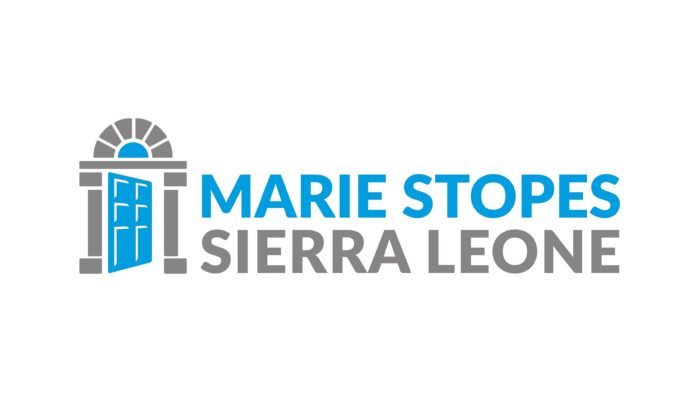By: Komba Fillie
One of the leading advocacy organizations in Ending Child marriage and unwanted pregnancy in the country “Marie Stopes Sierra Leone” on Thursday 15th May 2025 continued its sensitization and advocacy on the National Strategy for the reduction of Adolescent pregnancy and ending child marriages. The ceremony was held at the Iyces Hall Waterloo in Freetown.
The purpose of the strategy is to galvanize strong and effective partnerships, accelerate and integrate efforts to improve and sustain good health and overall wellbeing for adolescents and promote meaningful participation of adolescents in the socioeconomic growth and development.
The goal of the strategy is to contribute to the SDG target 3.7 of ensuring universal access to adolescents including family planning and contribute to the SDG target 5.3 of eliminating child marriage and other harmful practices in Sierra Leone by 2030.
The strategy objective is to reduce adolescent pregnancy from 21% in 2020 to10% in 2030 and eliminate child marriage by 2030.
Giving a brief background of the organization, the Communication and External Relation Manager at Marie Stopes Sierra Leone, Sandi Massaquoi underscored the importance of the engagement, while noting that Marie Stopes Sierra Leone is the largest Non-Governmental Organization providing Family Planning, Ultrasound Scan, Laboratory and Sexual Reproductive Health Services in Sierra Leone.
“We have a long and proud history in the country and we are known locally as the leading women’s healthcare provider across Sierra Leone. Marie Stopes Sierra Leone has been providing Sexual and Reproductive Health and family planning services across Sierra Leone since 1986,” he said.
Mr. Massaquoi pointed out that Marie Stopes Sierra Leone (MSSL) is part of a partnership of MSI – Reproductive Choices and that the organization is registered in Sierra Leone as a local Non-Governmental Organization (NGO) operating within Sierra Leone and has been providing access to high-quality and affordable sexual and reproductive health services (SRH) to all people across Sierra Leone since 1986.
The service delivery channels of the Marie Stopes Sierra Leone is adapted to fit the different contexts of women in the different districts across the country to maximize opportunities for building a sustainable platform that can provide a lasting impact on the health outcomes of Sierra Leoneans.
In 2022, the direct healthcare costs that MSSL services saved the Government of Sierra Leone from was GBP 10,293,154.
“This was done through our service delivery points across Sierra Leone,” he said.
MSSL’s strategy was developed to ensure compliance with national strategies around reach, and procurement of family planning (FP) supplies from national supply chains and delivery systems. MSSL is an active participant in the SRH sector in Sierra Leone, including other national and district-level technical working groups.
In his presentation, the Advocacy and Communication Lead, Teenage Pregnancy Secretariat, Victor Karimu said adolescents comprises 12.4% of the entire population of Sierra Leone in 2020.
He said child marriage and adolescent pregnancy are the two main challenges of life for this age group.
“Sierra Leone formulated and launched the first strategy in March 2013 for the reduction of teenage pregnancy during the period 2013 – 2015 and the second National Strategy including child marriage was developed and launched covering the period 2018 – 2022,” he narrated.
Mr. Karimu pointed out that the Prohibition Against Child Marriage Act 2024, recently endorsed by his Excellency the President categorically bans child marriage in the country.
He said ensuring a safe transition from adolescence to adulthood is for individuals and cumulative socioeconomic development of the country adding that the situation in Sierra Leone, calling for immediate and sustained multi-sectoral efforts to address the causes of adolescent pregnancy and child marriage.
The Lead Facilitator further noted that despite some decline, it has shown that the causes and drivers of CM and TP is there, showing no significant changes.
“There is need for a renewed commitment and collaboration across MDAs, civil society organizations and development partners, as well as a common vision, goals and strategic actions and the new strategy will serve as a guiding framework for all stakeholders to plan and implement the needed actions during the 2025-2030 period.’
He said Adolescent pregnancy refers to pregnancy in adolescents between ages 10-19 years. It is also a global public health and social problem that affects both developed and developing countries, often unplanned but decline in adolescent birth rates has been observed globally, but sub-Saharan Africa (SSA) continues to have twice the global average, with over 100 births per 1,000 women in 2021.
Mr. Karimu noted that child marriage is the age between 18 years and the fundamental violation of several aspects of human rights: the right to make choices in life, health, education, safety, and security. He said currently, 640 million girls and women alive today were married before age 18. At current rates of progress, it will take 300 years to end child marriage and adolescent pregnancy, and child marriage are closely associated problems.
The strategy he said build on11 pillars: Public Health Policy, and Legal Environment, Education, Community Engagement & Ownership, Social Assistance and Livelihoods, Leadership, Coordination and Research, Coordination framework, Monitoring and Evaluation Framework and Costing and Financing.




